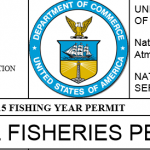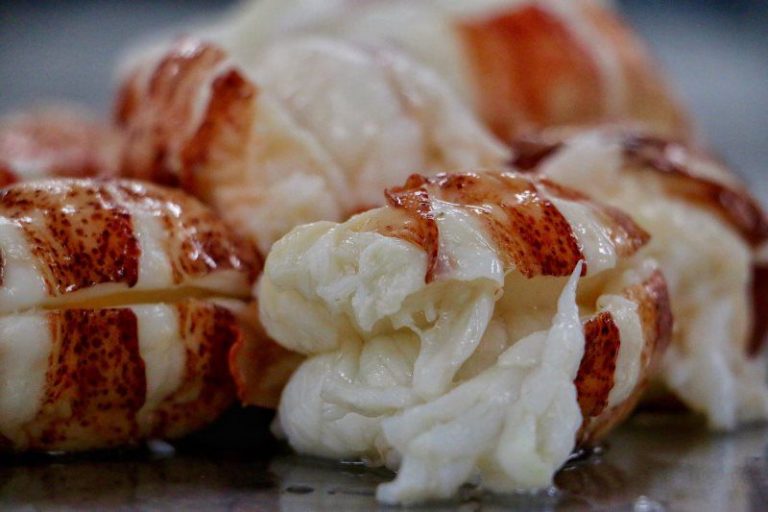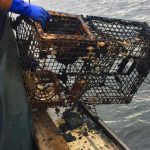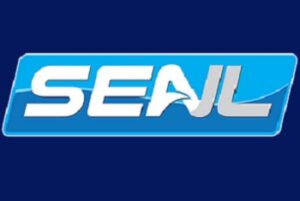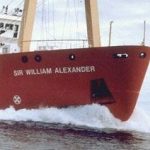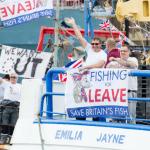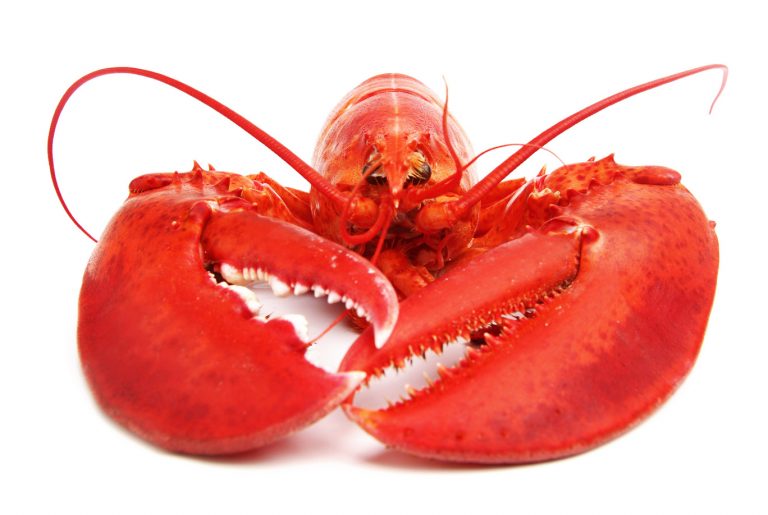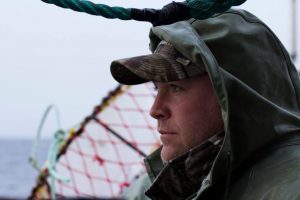Monthly Archives: August 2015
10 Years Forward: Fishermen ride out rough waters after Katrina, clear skies ahead
 Long before Hurricane Katrina roared through, south Louisiana’s commercial industry already faced major challenges. Katrina just became the next hurdle fishermen had to endure to stay afloat. In the decade since, St. Bernard and Plaquemines parishes have faced more storms, the BP oil spill, and the continued disappearance of valuable wetlands. Still, they’ve managed to survive and thrive. “I’m going to be dancing at 100! That’s my goal,” said Tommy Gonzales. All his life, he’s trapped and fished the waters of Delacroix Island and the Gulf of Mexico. For hundreds of years, commercial fishing has been a way of life in Shell Beach. Video, Read the rest here 10:43
Long before Hurricane Katrina roared through, south Louisiana’s commercial industry already faced major challenges. Katrina just became the next hurdle fishermen had to endure to stay afloat. In the decade since, St. Bernard and Plaquemines parishes have faced more storms, the BP oil spill, and the continued disappearance of valuable wetlands. Still, they’ve managed to survive and thrive. “I’m going to be dancing at 100! That’s my goal,” said Tommy Gonzales. All his life, he’s trapped and fished the waters of Delacroix Island and the Gulf of Mexico. For hundreds of years, commercial fishing has been a way of life in Shell Beach. Video, Read the rest here 10:43
Dallas chefs say small portions key to enjoying escolar, dubbed ‘the Ex-Lax fish’
The fish has gone by many names: oilfish, white tuna, super white tuna, butterfish and walu among them. But the very qualities celebrated by these names — the buttery consistency and rich taste — are also behind another, less attractive name: “the Ex-Lax fish.” Indigestible wax esters give the fish a flavor that some chefs praise but that, in larger portions, can provoke food-poisoning-like symptoms or diarrhea. You might assume a food that causes these types of reactions wouldn’t be sold in mainstream restaurants. But escolar, served by more than a dozen,,, Read the rest here 10:13
Lauren Reid: The Truth About Tuna – Sailing to the Front Line of Pacific Tuna Fisheries
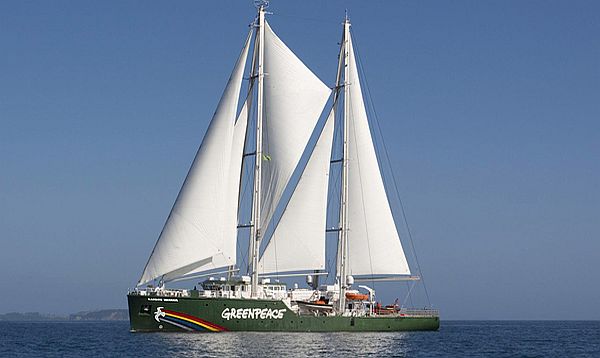 With recent stories of overfishing, shark finning, and human rights abuses (one New York Times reporter stated that being a fisherman in some parts of the Pacific Ocean “was a job where more than 50 percent of workers report their boss killing a co-worker”), I can’t help but feel extremely moved and heartbroken if these are true. The best way for me to comprehend how our canned tuna actually gets from sea to plate is to head to the source itself. Read Sailing to the Front Line of Pacific Tuna Fisheries – part one, Out on the High Seas – part two, Hard Life Aboard – part three, Reflections on Commercial Fishing – part four.09:35
With recent stories of overfishing, shark finning, and human rights abuses (one New York Times reporter stated that being a fisherman in some parts of the Pacific Ocean “was a job where more than 50 percent of workers report their boss killing a co-worker”), I can’t help but feel extremely moved and heartbroken if these are true. The best way for me to comprehend how our canned tuna actually gets from sea to plate is to head to the source itself. Read Sailing to the Front Line of Pacific Tuna Fisheries – part one, Out on the High Seas – part two, Hard Life Aboard – part three, Reflections on Commercial Fishing – part four.09:35
Nobody wants to answer the phone when a whale corpse needs to be removed
 Dead whale is the kind of stink you never forget. Dwayne MacDonald has smelled it, and he doesn’t want to inflict its lingering aromas on his fellow Cape Bretoners. “This is something that happens every year,” he said. “It’s not a major shock when a whale washes up in Inverness County.” He’s the councillor for the area, and has heard about three dead whales in the last week. “Every year, the same process starts where a resident calls around to different levels of government and says, ‘How do we handle this?’ And they pass the buck to the next person down the line.” Read the rest here 08:32
Dead whale is the kind of stink you never forget. Dwayne MacDonald has smelled it, and he doesn’t want to inflict its lingering aromas on his fellow Cape Bretoners. “This is something that happens every year,” he said. “It’s not a major shock when a whale washes up in Inverness County.” He’s the councillor for the area, and has heard about three dead whales in the last week. “Every year, the same process starts where a resident calls around to different levels of government and says, ‘How do we handle this?’ And they pass the buck to the next person down the line.” Read the rest here 08:32
Feds release extra water to save Klamath salmon from disease
 With water scarce in Northern California’s Klamath Basin, a federal agency is again releasing cool, clean water into the Klamath River to prevent a repeat of the 2002 fish kill that left tens of thousands of adult salmon dead.The U.S. Bureau of Reclamation said releases started Friday from Lewiston Dam on the Trinity River, the Klamath’s primary tributary, and would continue into late September. Similar releases were done the last three years. They come from water that is shared with farms in the Central Valley. “In this fourth year of severe drought,,, Read the rest here 19:54
With water scarce in Northern California’s Klamath Basin, a federal agency is again releasing cool, clean water into the Klamath River to prevent a repeat of the 2002 fish kill that left tens of thousands of adult salmon dead.The U.S. Bureau of Reclamation said releases started Friday from Lewiston Dam on the Trinity River, the Klamath’s primary tributary, and would continue into late September. Similar releases were done the last three years. They come from water that is shared with farms in the Central Valley. “In this fourth year of severe drought,,, Read the rest here 19:54
Congressman Seth Moulton – a friend to lobster industry by Beth Casoni
 We would like to publicly thank Congressman Seth Moulton for supporting our efforts against the expansion of the Northeast Fishery Observer Program to lobster vessels in Massachusetts. Although we have always been confident in Congressman Moulton’s abilities to advocate on behalf of the hardworking lobstermen in Massachusetts’ 6th District, his actions are proof of this commitment. Earlier this week, Congressman Moulton led a letter Read the rest here 16:01
We would like to publicly thank Congressman Seth Moulton for supporting our efforts against the expansion of the Northeast Fishery Observer Program to lobster vessels in Massachusetts. Although we have always been confident in Congressman Moulton’s abilities to advocate on behalf of the hardworking lobstermen in Massachusetts’ 6th District, his actions are proof of this commitment. Earlier this week, Congressman Moulton led a letter Read the rest here 16:01
Fish tales from a landmark: Newport Beach’s century-old Dory Fleet seafood market
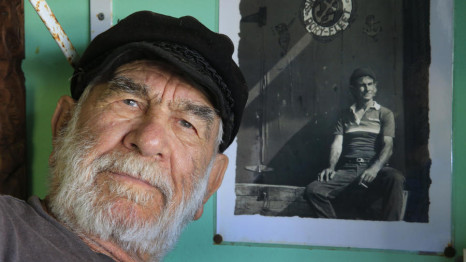 At the Dory Fleet market in Newport Beach, local independent fishermen have been selling their catch directly to the public for more than 100 years. If anything, it’s more popular today than it has ever been. The market, founded in 1891 and declared a historical landmark, has seen its share of ups and downs. Two of its members have been lost at sea, and tight new regulations designed to protect some overfished species have made it tough for fishermen to make a living. But today, the market is thriving, and so are the hardy survivors who make it happen. Read the rest here 15:00
At the Dory Fleet market in Newport Beach, local independent fishermen have been selling their catch directly to the public for more than 100 years. If anything, it’s more popular today than it has ever been. The market, founded in 1891 and declared a historical landmark, has seen its share of ups and downs. Two of its members have been lost at sea, and tight new regulations designed to protect some overfished species have made it tough for fishermen to make a living. But today, the market is thriving, and so are the hardy survivors who make it happen. Read the rest here 15:00
Boston’s future depends on a thriving seafood industry
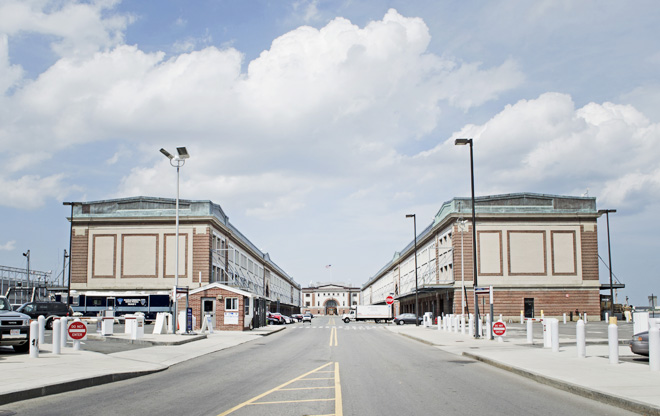 Massachusetts ranks second to Alaska in the value of seafood caught nationally. Several of the state’s ports — especially New Bedford and Gloucester — bring in bigger catches than Boston. But Boston has the rare ingredients that position it as an epicenter of the state’s seafood processing industry. In close proximity, it has dockside access to fishing boats and seafood processors, an international airport, the interstate highway system, and a global shipping container facility. Read the rest here 12:25
Massachusetts ranks second to Alaska in the value of seafood caught nationally. Several of the state’s ports — especially New Bedford and Gloucester — bring in bigger catches than Boston. But Boston has the rare ingredients that position it as an epicenter of the state’s seafood processing industry. In close proximity, it has dockside access to fishing boats and seafood processors, an international airport, the interstate highway system, and a global shipping container facility. Read the rest here 12:25
Brooklyn Seafood Seller Caught Trafficking Shark Fins
 Long Quan Seafood International Trading Corp. — a wholesale seafood retailer down on Bath Avenue in Bath Beach, Brooklyn — now holds the unlucky title of first company to be successfully prosecuted under New York State’s one-year-old shark fin ban. On June 22, Long Quan’s owners pleaded guilty to “felony commercialization of wildlife” and paid a $10,000 fine for “trafficking in shark fins,” according to the state Department of Environmental Conservation (DEC). The DEC says Long Quan was caught trafficking shark fins just a few months,,, Read the rest here 09:21
Long Quan Seafood International Trading Corp. — a wholesale seafood retailer down on Bath Avenue in Bath Beach, Brooklyn — now holds the unlucky title of first company to be successfully prosecuted under New York State’s one-year-old shark fin ban. On June 22, Long Quan’s owners pleaded guilty to “felony commercialization of wildlife” and paid a $10,000 fine for “trafficking in shark fins,” according to the state Department of Environmental Conservation (DEC). The DEC says Long Quan was caught trafficking shark fins just a few months,,, Read the rest here 09:21
Weir fishermen struggling to catch herring in Bay of Fundy
 Some fishermen in the Bay of Fundy are worried the centuries-old herring weir fishery could be coming to an end because of a lack of fish. Dan Cunningham is one of those fishermen. He says over the past six years he has noticed a steady decline in the amount of herring. Last summer, weir fishermen only landed a quarter of what they caught the year before. They say this year is even worse. Read the rest here 08:44
Some fishermen in the Bay of Fundy are worried the centuries-old herring weir fishery could be coming to an end because of a lack of fish. Dan Cunningham is one of those fishermen. He says over the past six years he has noticed a steady decline in the amount of herring. Last summer, weir fishermen only landed a quarter of what they caught the year before. They say this year is even worse. Read the rest here 08:44
“The folks in Washington, they’re just not doing their job,” – Low prices mark start of fall shrimp season
 Area fishermen reported good catches but low prices during the first week of the fall shrimp season. On Monday the state Department of Wildlife and Fisheries opened the shrimp season for waters within three miles of the coast. “They’re beautiful shrimp,” Carol Terrebonne, an owner of The Seafood Shed in Golden Meadow, said today. Clint Guidry, president of the Louisiana Shrimpers Association, said shrimpers are receiving roughly 60-65 percent of the prices they were last year. Contributing to the price drop is an influx of imported shrimp and reluctance from federal officials to enforce regulations already on the books, Guidry said. Read the rest here 07:28
Area fishermen reported good catches but low prices during the first week of the fall shrimp season. On Monday the state Department of Wildlife and Fisheries opened the shrimp season for waters within three miles of the coast. “They’re beautiful shrimp,” Carol Terrebonne, an owner of The Seafood Shed in Golden Meadow, said today. Clint Guidry, president of the Louisiana Shrimpers Association, said shrimpers are receiving roughly 60-65 percent of the prices they were last year. Contributing to the price drop is an influx of imported shrimp and reluctance from federal officials to enforce regulations already on the books, Guidry said. Read the rest here 07:28
Motive behind the set net ban is reallocation – Jerry McCune
 This is about the anti-set net ballot initiative that is before the Alaska Supreme Court and the devastating effect it will have on commercial fishing and other resource extraction industries throughout Alaska if it makes it onto the ballot. Alaska Fisheries Conservation Alliance (AFCA), the group sponsoring the anti-setnet initiative, claims that its efforts are not an attack on commercial fishing, the group’s actions, however, speak louder than words. Approval of the initiative would change the landscape for commercial fishing and resource extraction industries statewide. Read the rest here 22:48
This is about the anti-set net ballot initiative that is before the Alaska Supreme Court and the devastating effect it will have on commercial fishing and other resource extraction industries throughout Alaska if it makes it onto the ballot. Alaska Fisheries Conservation Alliance (AFCA), the group sponsoring the anti-setnet initiative, claims that its efforts are not an attack on commercial fishing, the group’s actions, however, speak louder than words. Approval of the initiative would change the landscape for commercial fishing and resource extraction industries statewide. Read the rest here 22:48
Controversial commercial fishery on Howe Sound shut down
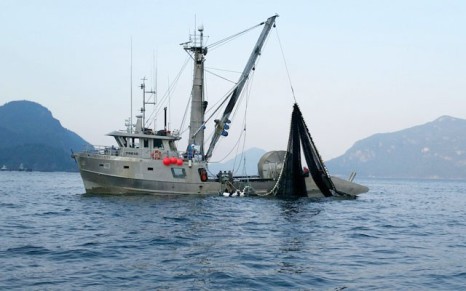 A commercial fishery on Howe Sound was shut down by the federal government last week after it was discovered there wasn’t “the abundance of fish” originally expected — despite prior warnings from local anglers of low pink salmon numbers. The Department of Fisheries and Oceans (DFO) announced the pink salmon fishery for Aug. 10 to 15, limiting it to two seine vessels between 6 a.m. and 9 p.m. daily. It was shut down Wednesday, Aug. 12. “The DFO was not yet seeing the abundance of fish that were anticipated for that time, therefore it was prudent,,, Read the rest here 20:16
A commercial fishery on Howe Sound was shut down by the federal government last week after it was discovered there wasn’t “the abundance of fish” originally expected — despite prior warnings from local anglers of low pink salmon numbers. The Department of Fisheries and Oceans (DFO) announced the pink salmon fishery for Aug. 10 to 15, limiting it to two seine vessels between 6 a.m. and 9 p.m. daily. It was shut down Wednesday, Aug. 12. “The DFO was not yet seeing the abundance of fish that were anticipated for that time, therefore it was prudent,,, Read the rest here 20:16
Humans are ‘unique super-predator’
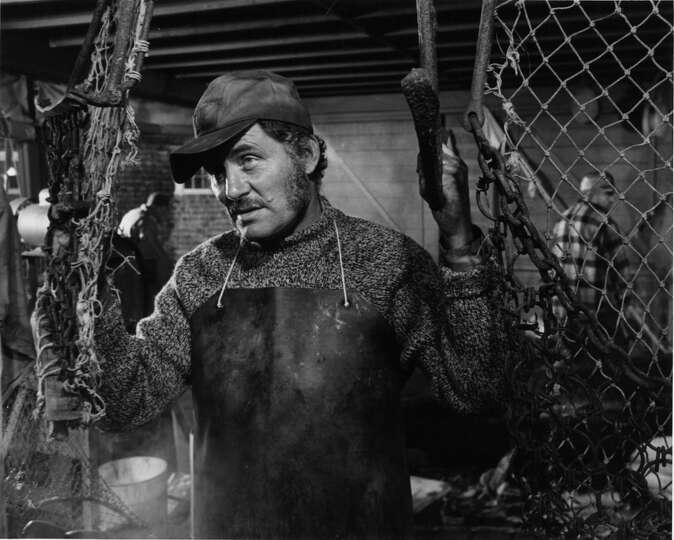 Humans’ status as a unique super-predator is laid bare in a new study published in Science magazine. The analysis of global data details the ruthlessness of our hunting practices and the impacts we have on prey. It shows how humans typically take out adult fish populations at 14 times the rate that marine animals do themselves. And on land, we kill top carnivores, such as bears, wolves and lions, at nine times their own self-predation rate. “Hunters ‘capture’ mammals with bullets, and fishes with hooks and nets. Read the rest here
Humans’ status as a unique super-predator is laid bare in a new study published in Science magazine. The analysis of global data details the ruthlessness of our hunting practices and the impacts we have on prey. It shows how humans typically take out adult fish populations at 14 times the rate that marine animals do themselves. And on land, we kill top carnivores, such as bears, wolves and lions, at nine times their own self-predation rate. “Hunters ‘capture’ mammals with bullets, and fishes with hooks and nets. Read the rest here
2015 sockeye run produced underweight fish across state
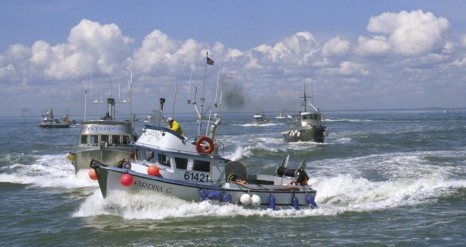 With the bulk of the sockeye season over, biologists and fishermen have continued to notice smaller than average weight for one of Alaska’s most valuable exports. Workers statewide from offices of the Alaska Department of Fish and Game, or ADFG, noticed an early in-season trend of smaller-than-average fish. Throughout the state’s early season salmon fisheries, particularly sockeye and chum, fish were coming in shorter and lighter for their age. “The biggest reason would be lots of fish equals small fish,” “The catch last year (in Bristol Bay) was 28 million versus 35 million this year. Read the rest here 16:33
With the bulk of the sockeye season over, biologists and fishermen have continued to notice smaller than average weight for one of Alaska’s most valuable exports. Workers statewide from offices of the Alaska Department of Fish and Game, or ADFG, noticed an early in-season trend of smaller-than-average fish. Throughout the state’s early season salmon fisheries, particularly sockeye and chum, fish were coming in shorter and lighter for their age. “The biggest reason would be lots of fish equals small fish,” “The catch last year (in Bristol Bay) was 28 million versus 35 million this year. Read the rest here 16:33
Tributes paid on death of pioneering mackerel skipper and fishing industry leader
 Martin Howley was known from ‘north Norway to China’. Tributes have been paid to pioneering mackerel skipper, Donegal-based businessman and fishing industry leader Martin Howley who has died after a short illness. Mr Howley (63) was joint owner of one of the largest Irish mackerel vessels, the Atlantic Challenge, and served a number of terms over 18 years as chairman of the Killybegs Fishermen’s Organisation (KFO). After he came ashore, he became involved with leading netmaking factory Swan Net Gundry in Killybegs, and was a consultant on fishing techniques in several countries, including Chile, Peru, Iran, Namibia and Alaska. Read the rest here 14:08
Martin Howley was known from ‘north Norway to China’. Tributes have been paid to pioneering mackerel skipper, Donegal-based businessman and fishing industry leader Martin Howley who has died after a short illness. Mr Howley (63) was joint owner of one of the largest Irish mackerel vessels, the Atlantic Challenge, and served a number of terms over 18 years as chairman of the Killybegs Fishermen’s Organisation (KFO). After he came ashore, he became involved with leading netmaking factory Swan Net Gundry in Killybegs, and was a consultant on fishing techniques in several countries, including Chile, Peru, Iran, Namibia and Alaska. Read the rest here 14:08
Granddaughter of F/V Mary E. O’Hara cook to speak at service
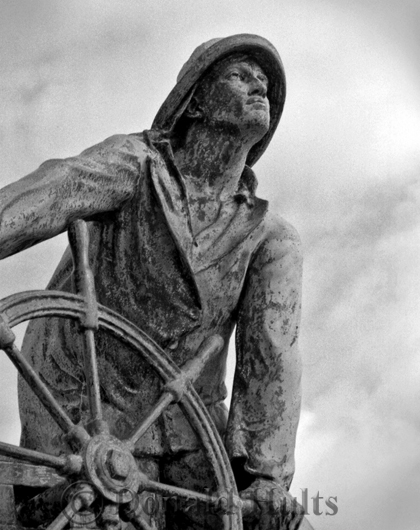 Carol Figurido of Gloucester never knew her grandfather. Thomas Isaac Moulton and five other Gloucester men “went down to the sea in ships” aboard the fishing vessel Mary E. O’Hara in 1941, before Figurido was even born. But through speaking with relatives and tracking down her family history, Figurido says she’s learned a good deal about Moulton, who was lost at sea at the age of 48. So, come Saturday, she will speak of her grandfather — and the 5,383 other Gloucestermen whose names grace the Fishermen’s Memorial Cenotaph — at the annual Fishermen’s Memorial Service. Read the rest here 12:59 The tragedy – Mary E. O’Hara (1941) Here
Carol Figurido of Gloucester never knew her grandfather. Thomas Isaac Moulton and five other Gloucester men “went down to the sea in ships” aboard the fishing vessel Mary E. O’Hara in 1941, before Figurido was even born. But through speaking with relatives and tracking down her family history, Figurido says she’s learned a good deal about Moulton, who was lost at sea at the age of 48. So, come Saturday, she will speak of her grandfather — and the 5,383 other Gloucestermen whose names grace the Fishermen’s Memorial Cenotaph — at the annual Fishermen’s Memorial Service. Read the rest here 12:59 The tragedy – Mary E. O’Hara (1941) Here
Rep. Bob Steinburg and W. Douglas Brady named to Atlantic States Marine Fisheries Commission
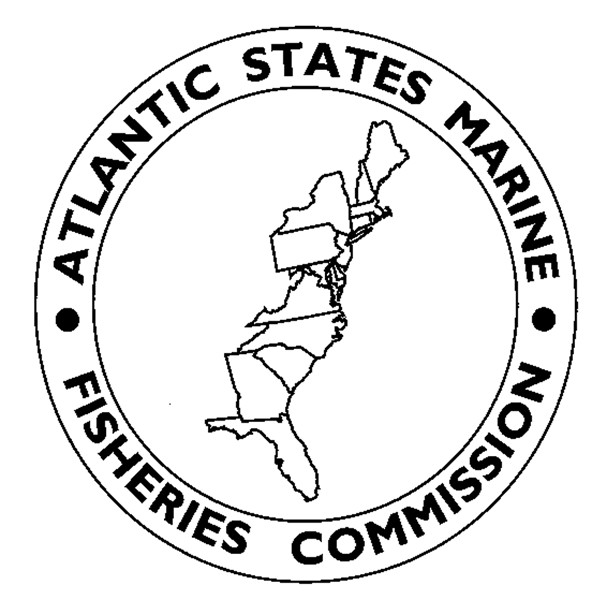 Gov. Pat McCory has appointed a local member of the state House of Representatives and a former Carteret County commissioner to the Atlantic States Marine Fisheries Commission. Rep. Bob Steinburg and W. Douglas Brady were named recently to serve on the panel that represents the interests and needs of east coast marine fisheries, promotes better utilization of the fisheries and develops programs for promotion and protection of such fisheries, according to a news release from the governor’s office. Read the rest here 12:24
Gov. Pat McCory has appointed a local member of the state House of Representatives and a former Carteret County commissioner to the Atlantic States Marine Fisheries Commission. Rep. Bob Steinburg and W. Douglas Brady were named recently to serve on the panel that represents the interests and needs of east coast marine fisheries, promotes better utilization of the fisheries and develops programs for promotion and protection of such fisheries, according to a news release from the governor’s office. Read the rest here 12:24
Greater than average returns sets Columbia River Fall salmon seasons with good forecasts
 Greater than average forecasts of fall chinook and coho salmon are opening the way for more commercial fishing in the Columbia River. In three meetings in recent weeks, the two-state Columbia River Compact set fishing periods for both treaty Indian and non-Indian commercial gillnetters, select area fisheries, research seine fisheries and recreational fisheries. The compact also set the select area gillnet fisheries (those commercial fisheries not in the main Columbia River channel) at its July 29 hearing. Read the rest here 12:16
Greater than average forecasts of fall chinook and coho salmon are opening the way for more commercial fishing in the Columbia River. In three meetings in recent weeks, the two-state Columbia River Compact set fishing periods for both treaty Indian and non-Indian commercial gillnetters, select area fisheries, research seine fisheries and recreational fisheries. The compact also set the select area gillnet fisheries (those commercial fisheries not in the main Columbia River channel) at its July 29 hearing. Read the rest here 12:16
State Rep. Goldfinch applauded for stance against offshore no-fishing zones
The Council for Sustainable Fishing, a regional advocacy group for recreational and commercial fishing interests, Thursday applauded state  , for his letter to the South Atlantic Fishery Management Council opposing additional offshore no-fishing zones. “We thank Rep. Goldfinch for standing up for fishing interests and the coastal economy and his recognition that there is simply no justification for any additional no-fishing areas in the South Atlantic,” Council for Sustainable Fishing Executive Director Tom Swatzel said. Read the rest here 09:19
, for his letter to the South Atlantic Fishery Management Council opposing additional offshore no-fishing zones. “We thank Rep. Goldfinch for standing up for fishing interests and the coastal economy and his recognition that there is simply no justification for any additional no-fishing areas in the South Atlantic,” Council for Sustainable Fishing Executive Director Tom Swatzel said. Read the rest here 09:19
State leaders express concern about NOAAs “oppressive” observer funding decision
 The Baker-Polito administration sent an letter to federal partners Monday expressing “serious concern” about the requirement, and urging their support in covering the costs of the At-Sea-Monitoring (ASM) program for the Northeast fishery, according to a news release from the governor’s office. The letter encourages NOAA Fisheries to prove the cost-effectiveness of the “burdensome” monitoring program and support federal funds to pay for the monitoring. It follows a request from the New England Fisheries Management Council to suspend ASM and evaluate the program’s effectiveness, according to the release. Read the rest here 08:30
The Baker-Polito administration sent an letter to federal partners Monday expressing “serious concern” about the requirement, and urging their support in covering the costs of the At-Sea-Monitoring (ASM) program for the Northeast fishery, according to a news release from the governor’s office. The letter encourages NOAA Fisheries to prove the cost-effectiveness of the “burdensome” monitoring program and support federal funds to pay for the monitoring. It follows a request from the New England Fisheries Management Council to suspend ASM and evaluate the program’s effectiveness, according to the release. Read the rest here 08:30
NOAA Regional Administrator John K. Bullard Sticks to his guns over at-sea monitoring battle
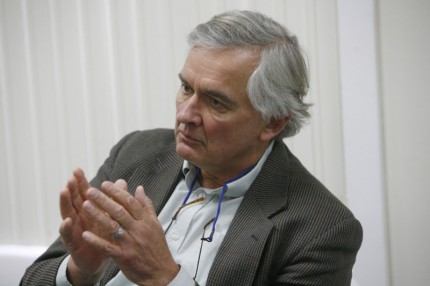 Bullard’s letter on Tuesday to NEFMC Executive Director Tom Nies followed the same rejective tone as his letter about two weeks ago that rejected the council request — also made at its June meeting — for NOAA to use its administrative authority to suspend all groundfish at-sea monitoring for the remainder of the 2015 season. “While we do have authority to make administrative adjustments to the ASM program in-season, none of the options would be consistent with the current regulatory requirements and statistical standards, and as a result, we cannot take administrative action to modify the at-sea monitoring coverage for 2015,” Read the rest here 07:55
Bullard’s letter on Tuesday to NEFMC Executive Director Tom Nies followed the same rejective tone as his letter about two weeks ago that rejected the council request — also made at its June meeting — for NOAA to use its administrative authority to suspend all groundfish at-sea monitoring for the remainder of the 2015 season. “While we do have authority to make administrative adjustments to the ASM program in-season, none of the options would be consistent with the current regulatory requirements and statistical standards, and as a result, we cannot take administrative action to modify the at-sea monitoring coverage for 2015,” Read the rest here 07:55
Lawsuit accuses Costco of selling shrimp fed by slave labor
 A lawsuit filed Wednesday, Aug. 19, 2015, in San Francisco accuses retail giant Costco of selling giant shrimp that was produced by slave labor in Thailand. The suit seeks a halt to the imports and refunds for California customers. “Costco, as one of the largest companies in the world, is able to dictate the terms by which shrimp are produced and supplied to it,” the suit said. Costco “publicly represents that it does not tolerate human trafficking and slavery in its supply chain,” the suit said, and should be held to its words. No one at Costco was available for comment. Read the rest here 19:4
A lawsuit filed Wednesday, Aug. 19, 2015, in San Francisco accuses retail giant Costco of selling giant shrimp that was produced by slave labor in Thailand. The suit seeks a halt to the imports and refunds for California customers. “Costco, as one of the largest companies in the world, is able to dictate the terms by which shrimp are produced and supplied to it,” the suit said. Costco “publicly represents that it does not tolerate human trafficking and slavery in its supply chain,” the suit said, and should be held to its words. No one at Costco was available for comment. Read the rest here 19:4
Fish, shellfish recovered from Katrina faster than fishermen
As Hurricane Katrina lashed everything above ground, it also caused problems for seafood in the waters of the Gulf of Mexico. With the exception of oysters, seafood does OK during hurricanes,” Caffey said. “The sediment can smother an oyster bed and cause short-term losses. Long term, fishermen don’t do well.” That’s because fishermen rely on boats, processing plants and docks that get walloped by the hurricanes, and that leaves livelihoods in danger. Read the rest here 17:06
Southwest Florida Sustainable seafood venture proposes processing whole fish
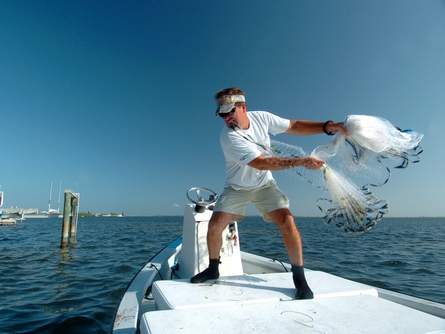 If you are killing a fish mostly to get its valuable eggs and turn them into an expensive delicacy, what do you do with the leftovers? Healthy Earth intends to prove its case in Southwest Florida, building on two fishy acquisitions started here: The Anna Maria Fish Co., which makes bottarga from mullet roe, and Mote Marine Laboratory’s multi-year success story growing Russian sturgeon in tanks to create a sustainable source of caviar. A more profitable and more ecologically sound solution, is to make fish chow, fish oil and maybe some fertilizer out of what is left after taking the fish’s roe and its fillets. Read the rest here 15:31
If you are killing a fish mostly to get its valuable eggs and turn them into an expensive delicacy, what do you do with the leftovers? Healthy Earth intends to prove its case in Southwest Florida, building on two fishy acquisitions started here: The Anna Maria Fish Co., which makes bottarga from mullet roe, and Mote Marine Laboratory’s multi-year success story growing Russian sturgeon in tanks to create a sustainable source of caviar. A more profitable and more ecologically sound solution, is to make fish chow, fish oil and maybe some fertilizer out of what is left after taking the fish’s roe and its fillets. Read the rest here 15:31
Ag Giant Cargill Is Spending More Than $1 Billion to Get Into Fish Farming
 Cargill, one of the largest agricultural companies in the world, is making big investments in aquaculture. On Monday, it announced a 1.35-billion-euro deal (roughly $1.5 billion) to purchase the salmon-feed-manufacturing company EWOS. This large purchase is just one of many for Cargill, which became part of a $30-million joint venture to build shrimp-feed facilities in July and has “aquaculture capabilities” in Mexico, Central America, China, United States, Southeast Asia, India, and Ecuador, according to the company’s press release. Read the rest here 14:25
Cargill, one of the largest agricultural companies in the world, is making big investments in aquaculture. On Monday, it announced a 1.35-billion-euro deal (roughly $1.5 billion) to purchase the salmon-feed-manufacturing company EWOS. This large purchase is just one of many for Cargill, which became part of a $30-million joint venture to build shrimp-feed facilities in July and has “aquaculture capabilities” in Mexico, Central America, China, United States, Southeast Asia, India, and Ecuador, according to the company’s press release. Read the rest here 14:25
SECURE THE BOARDER! Asian carp discovery in Toronto prompts swift response
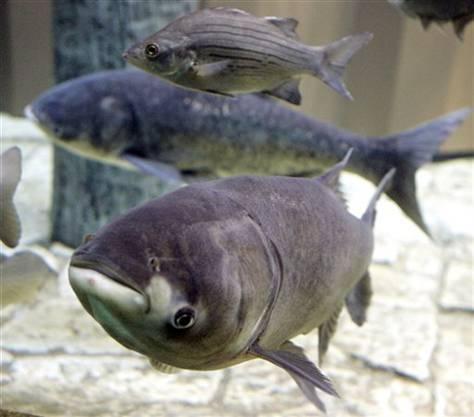 Canadian officials have moved quickly after an invasive species of fish was spotted in ponds in Toronto. It’s one of the largest responses ever against Asian carp. “We’re seeing an invasion happening in the U.S., so we can see the devastation that these species are having. We’re seeing native species pushed out for food and space, we’re seeing loss of habitat in wetlands areas and we’re seeing declines in commercial fishery values,” said Becky Cudmore, manager of the Asian Carp program. “Those are the type of impacts that these Asian carp species are,,, Read the rest here 14:03
Canadian officials have moved quickly after an invasive species of fish was spotted in ponds in Toronto. It’s one of the largest responses ever against Asian carp. “We’re seeing an invasion happening in the U.S., so we can see the devastation that these species are having. We’re seeing native species pushed out for food and space, we’re seeing loss of habitat in wetlands areas and we’re seeing declines in commercial fishery values,” said Becky Cudmore, manager of the Asian Carp program. “Those are the type of impacts that these Asian carp species are,,, Read the rest here 14:03
Don’t blame fishermen for fishery problems
 After many years of listening to debates over our declining environment and fisheries, I think I have come up with a simple solution to these complex problems. We need to start killing off as many manatees and groupers as we can, as soon as possible. Let’s start with manatees; there are simply too many of them for areas like the Indian River Lagoon. In fact, it is the cute cuddly manatee that has caused the environmental collapse of the lagoon. Of course the estimated 300,000 septic tanks, leaky sewer lines, approximately 545,000 human residents in Brevard County, run-off from agricultural operations, golf courses, lawns, etc.,,, Read the rest here 13:43
After many years of listening to debates over our declining environment and fisheries, I think I have come up with a simple solution to these complex problems. We need to start killing off as many manatees and groupers as we can, as soon as possible. Let’s start with manatees; there are simply too many of them for areas like the Indian River Lagoon. In fact, it is the cute cuddly manatee that has caused the environmental collapse of the lagoon. Of course the estimated 300,000 septic tanks, leaky sewer lines, approximately 545,000 human residents in Brevard County, run-off from agricultural operations, golf courses, lawns, etc.,,, Read the rest here 13:43
P.E.I. Fishermen’s Association is happy the province is seeking to become ‘Canada’s Food Island’
 A proposal to brand P.E.I. as “Canada’s Food Island” has the full support of the P.E.I. Fishermen’s Association. Under the plan, announced recently by Premier Wade MacLauchlan, the province hopes to expand on the Island’s growing reputation as a food destination. The proposal includes an expansion of fresh lobster holding capacity through expansion of existing facilities and the establishment of new ones. Read the rest here 12:59
A proposal to brand P.E.I. as “Canada’s Food Island” has the full support of the P.E.I. Fishermen’s Association. Under the plan, announced recently by Premier Wade MacLauchlan, the province hopes to expand on the Island’s growing reputation as a food destination. The proposal includes an expansion of fresh lobster holding capacity through expansion of existing facilities and the establishment of new ones. Read the rest here 12:59
Athearn Marine Agency Boat of the Week: 43′ Lobster/Crab/Gillnetter – John Deere 6081 Diesel
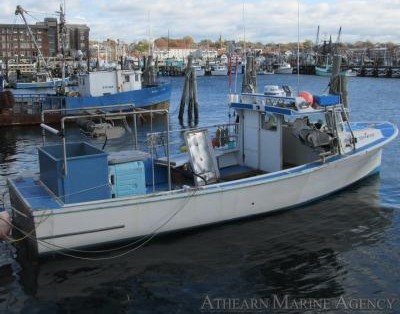 Specifications, information and 15 photo’s click here To see all the boats in this series, Click here 12:10
Specifications, information and 15 photo’s click here To see all the boats in this series, Click here 12:10

































